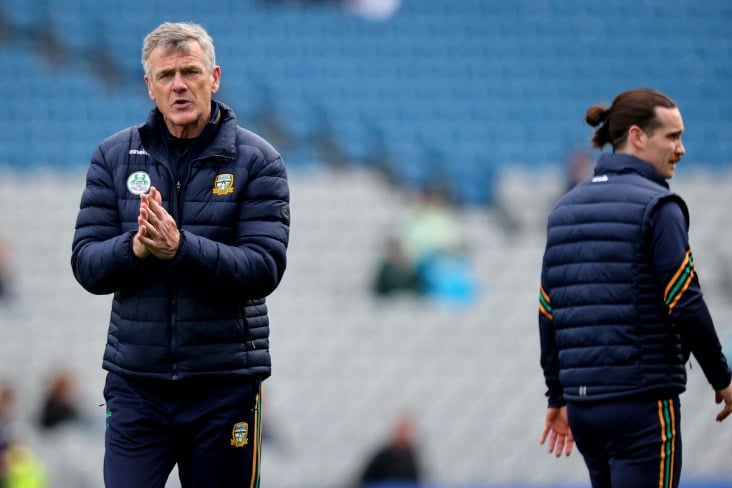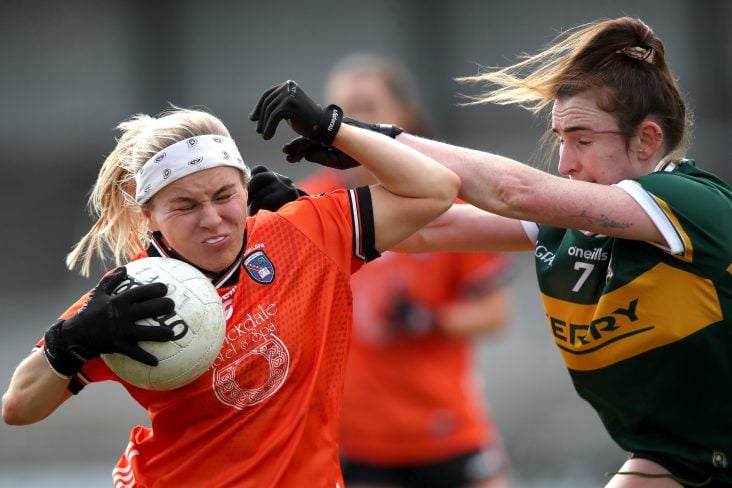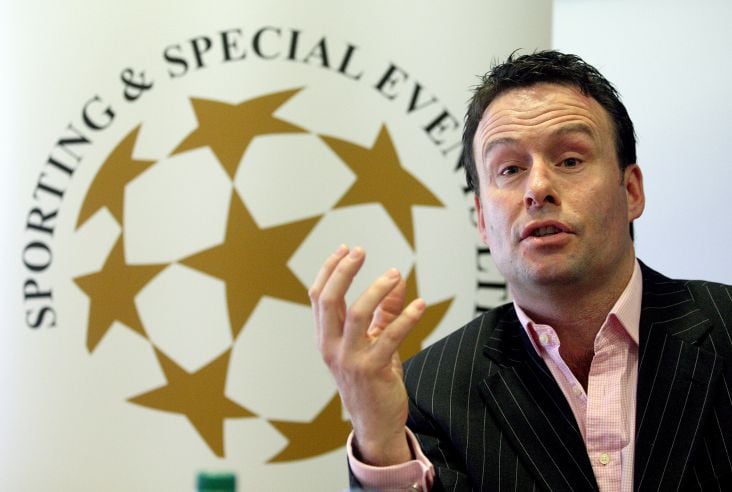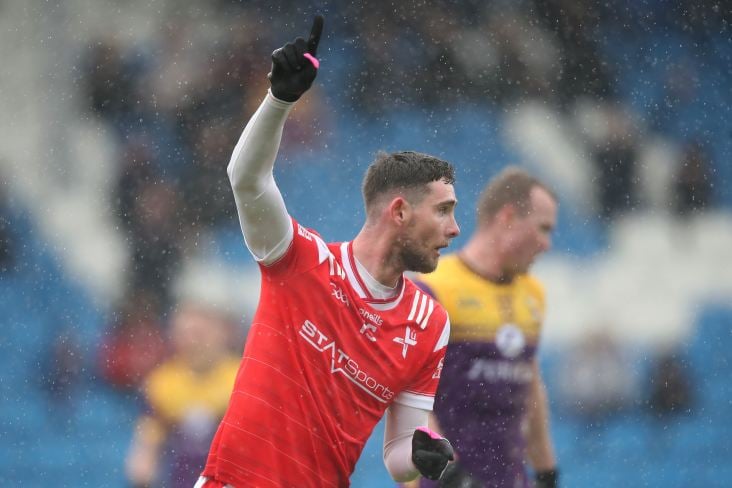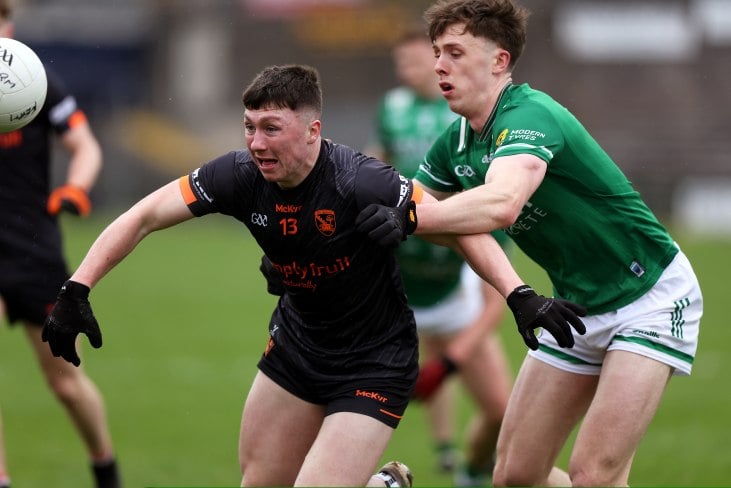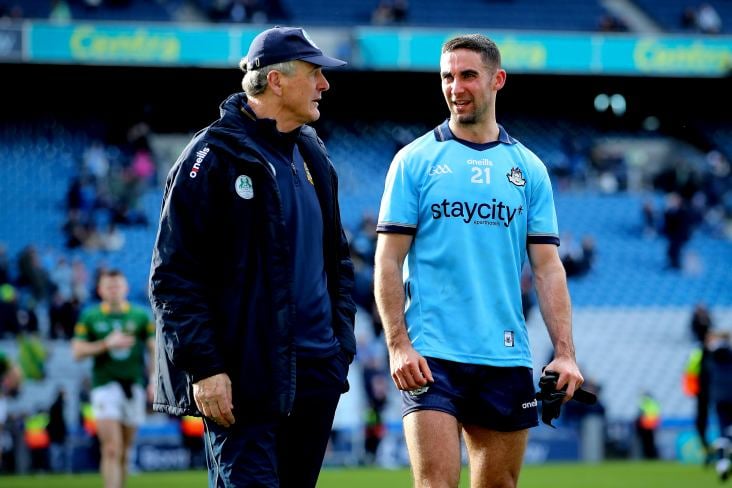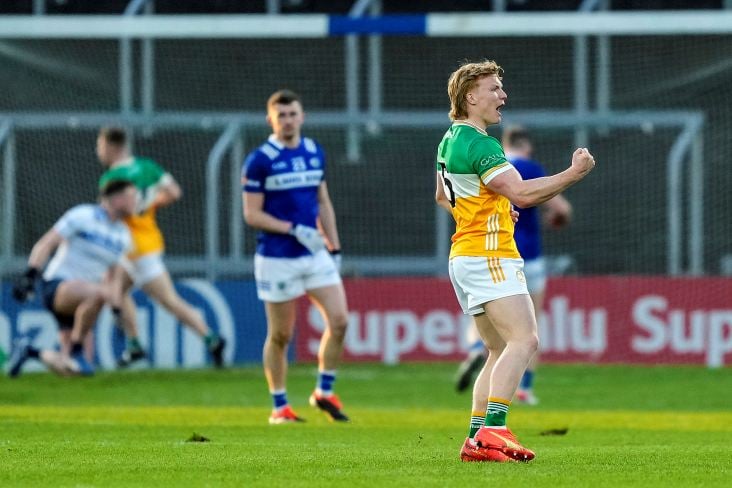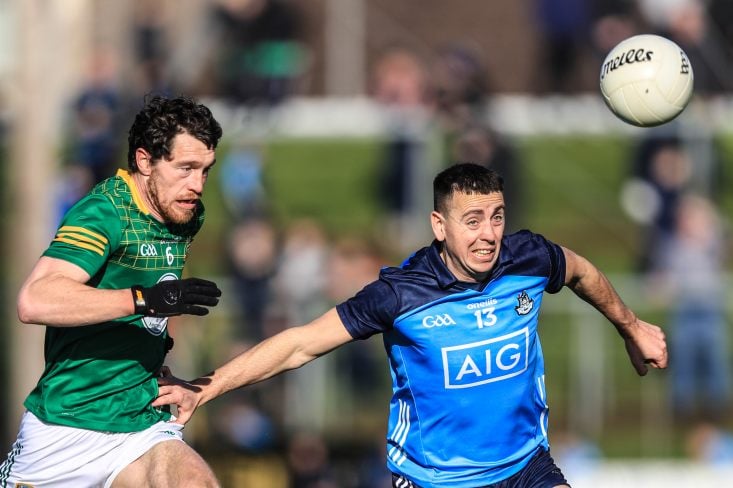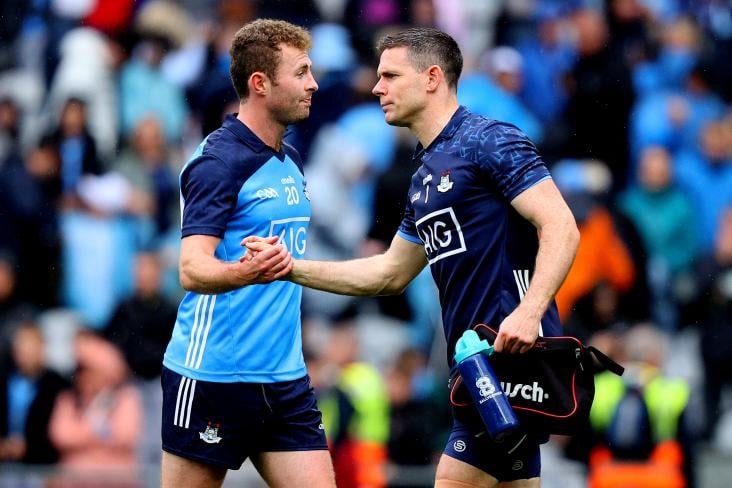Comment: this farce has to stop
May 25, 2017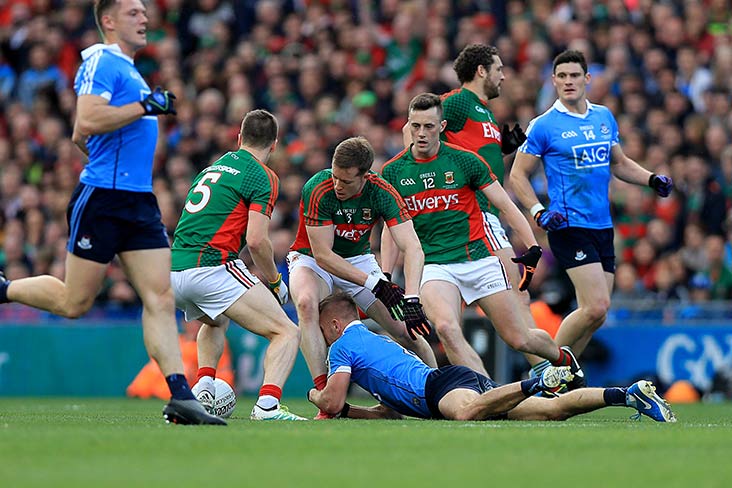
Does this constitute cynical play? Dublin's Jonny Cooper holds back Donal Vaughan of Mayo and is black carded during the All Ireland SFC final replay.
by Gerry Robinson
The black card is not fit for purpose and it has to be removed from gaelic football as soon as possible.
The presence of the controversial card as we know it today dates back to March, 2013 when - upon the recommendation of the Football Review Committee - it was passed at Congress in Derry with an 82% majority. It would be introduced at the start of the following calendar year to deal with a specific category of foul, i.e. cynical play. In August, 2013, the case for the black card intensified when Joe Brolly got his knickers in a twist over Sean Cavanagh's foul on Monaghan's Conor McManus at the Canal End of Croke Park and arch villains Tyrone advanced to an All-Ireland semi-final. By hook or by crook. As teams tend to do.
A disgusted Brolly went berserk in the RTE studio and told the nation that there is simply no place in sport for cynicism, as if prior to Cavanagh's indiscretion no team had ever before gained an advantage from a foul, as if no player had ever before been stopped in his tracks as he strived to conjure a score.
Brolly's OTT reaction to a foul perpetrated by a key cog in a team he passionately dislikes served to highlight the drastic need for action to rid the game of cyncial play. Of course, the black card was already on its way and it was duly introduced to the rulebook on January 1st, 2014. The fun and games began.
The black card would deal with cynical behaviour fouls - deliberate body collides, deliberate trips, deliberate pull downs, verbal abuse of an opponent or team mate, remonstrating to a match official - and we would never have another injustice again. Ha.
Never again would any player or team be wronged. Never again would an ace attacker who was potentially about to do something magical be stopped in his tracks by an opponent whose detail it is to stop him and who wants to win at all costs.
The black card doesn't work for myriad reasons. One of these is that there are too many grey areas. Not all deliberate trips and pull downs are that cynical, really, yet very innocuous incidents are being treated as cynical play - just ask Jonny Cooper or Kieran Hughes, who have been sent off for the sort of niggly things that happen all the time…
Could the good old yellow card not have dealt with these incidents that take place nowhere near the goal posts? Was Robbie Kiely's foul on Diarmuid O'Connor in last year's All-Ireland semi-final worthy of such an extreme sanction? This list could go on and on and on… Games are being ruined. Seasons are being ruined.
Players are walking a tightrope now and are in danger of being removed from the game for nothing fouls. Meanwhile, others who commit fouls that are clearly exactly what the ill-conceived black card was introduced for are getting away with it. Why? Because referees are either confused, inconsistent or don't want to enforce the rule.
The card has done nothing but spark controversy. It doesn't work. It is impossible to enforce because it is stupid and unnecessary. Cynical play still exists. There was no need to introduce it in the first place. What was wrong with yellow and red cards? A yellow card for a bad foul, a red one for a more severe or clearly cynical offence?
Players are still 'taking one for the team' when they have to. They will continue to do so. The black card has changed nothing. Kerry's Anthony Maher cynically pulled Michael Fitzsimons down in stoppage time in the league final in April and was black-carded. He gained the same advantage from the foul that Cavanagh did four years earlier as the Dublin advance was scuppered, Dean Rock missed the long-range free and the Kingdom won. By hook or by crook. Job done. Brolly was incensed again. You see, nothing had changed.
The black card is doing more harm than good and is totally unfair. It will dog the championship. Again. For every one that is correctly applied, there's another one missed / overlooked or a player wrongly sent to the line.
It has to go. It's time to give the black card the red card.
Tweet